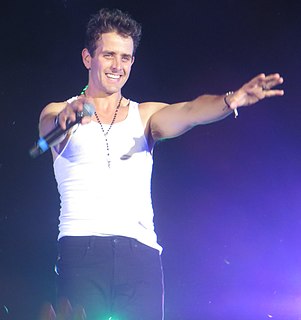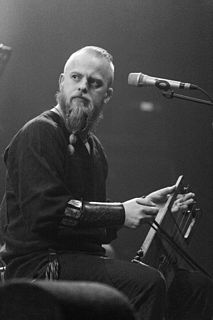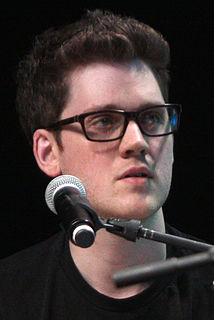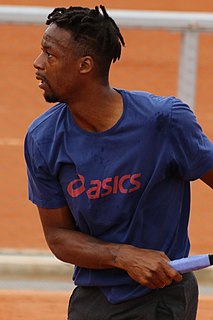A Quote by Claudia Rankine
I think music, like writing, can be a mirror. Can turn back onto the listener, the viewer, the reader, an experience that they know but they don't know.
Related Quotes
But to demand that a work be “relatable” expresses a different expectation: that the work itself be somehow accommodating to, or reflective of, the experience of the reader or viewer. The reader or viewer remains passive in the face of the book or movie or play: she expects the work to be done for her. If the concept of identification suggested that an individual experiences a work as a mirror in which he might recognize himself, the notion of relatability implies that the work in question serves like a selfie: a flattering confirmation of an individual's solipsism.
I'm a reader. I like - I'm a great reader. I keep going back, though, to certain authors, just like I love film, but I keep going back to just five or six certain filmmakers. In literature I like Chekhov, for example; I think he's my favorite. And Flaubert - you know, that kind of concision. But I also like Tolstoy; I love those romances that, you know, weigh 500 pounds and take months and months and months to read.
The music business has made a 360. It's a whole 'nother game. It's not nearly what it was. And I fear for it, because, you know, with the advent of the computer and online and downloading and all these things, they have destroyed - that stuff has destroyed the record business, not the music business, but the record business. The music business is well, and it's alive and thriving. Now, I hope something happens to turn it back around to the point whereas it's - you're earning a living from writing your songs, from your work, you know, because it's not like that anymore.
I hate outlines. I have a broad sense of where the story is going; I know the end, I know the end of the principal characters, and I know the major turning points and events from the books, the climaxes for each book, but I don't necessarily know each twist and turn along the way. That's something I discover in the course of writing and that's what makes writing enjoyable. I think if I outlined comprehensively and stuck to the outline the actual writing would be boring.
Writing original songs is much, much harder (I think) because you only have yourself to conjure up EVERY single moment a listener is going to hear. It's a craft that goes directly from your brain to their ears. You can never be sure that what you're writing is gonna be good enough to keep a listener engaged and truly experience something. It's a shot in the dark.
The facts of his existence are plain. I know that he will never silence those unspeakable voices. He heard how people killed, and how they died and their voices infected him, coursed through his body, poisoned him. He didn't know how to turn off the noise, or turn the hate back out onto the world like the rest of us. He turned it on himself. You could see that from the scars on him.
You know, my problem with most screenwriting is it is a blueprint. It's like they're afraid to write the damn thing. And I'm a writer. That's what I do. I want it to be written. I want it to work on the page first and foremost. So when I'm writing the script, I'm not thinking about the viewer watching the movie. I'm thinking about the reader reading the script.
I think music for me, it's part of my life. I like music. I think I'm very emotional, so, you know, I just try to take all the emotion, you know, that music bring it to me, you know, some make - I mean, help me to calm down some, for sure motivate me more. You know, there's always music. I think just make me smooth before the match, you know.







































